Overcoming Women’s Barriers to Participating in Entrepreneurship and Public Procurement in Africa
Venciendo barreras para la participación de las mujeres en el emprendimiento y las adquisiciones públicas de África
Africa Freedom of Information Centre (AFIC) was a grant awardee in the latest round of research under the Feminist Open Government Initiative, a program led by Results for Development (R4D) and the Open Government Partnership (OGP) with support from Canada’s International Development Research Centre (IDRC) that seeks to increase gender perspectives in open government. Read research from the latest cohort here.
Economically empowering women is an important avenue for boosting investments into families, communities, social development and national economic development. It is also an important way to contribute to gender equality. The number of women entrepreneurs in Africa ranked the highest in the world in 2019 and thereby holds unprecedented potential for such change. However, despite positive steps taken on international, regional and national levels to promote strategies for women’s economic empowerment and inclusion, evidence still suggests that women are being excluded from public procurementTransparency in the procurement process can help combat corruption and waste that plagues a significant portion of public procurement budgets globally. Technical specifications: Commitments that aim t... More processes.
The government should create awareness on public procurement for women to be empowered with information about the process through town hall meetings, jingles, etc. in rural areas.
For this reason, the Africa Freedom of Information Centre (AFIC) and three of its members; Public and Private Development Centre (Nigeria); Article 19 (Kenya); and Centre for Human Rights and Rehabilitation (Malawi) worked together to implement the ‘Deepening Open Government through Women’s Participation in Public Contracting’ project through the Open Government Partnership’s (OGP) Feminist Open Government Initiative. The project assessed women’s access to contracting information and how it is used; women’s role in the co-creation of OGP action plans; and whether governments commit to their access to and participation in public contracting, to ultimately determine whether such commitments were implemented and to what extent.
The research project increased knowledge and awareness of OGP across the three countries and renewed interest among women in business to actively participate in public contracting and procurement. More women are now aware of their rights to involvement in public contracting and procurement and the community developed a shared understanding of the need to involve women in public procurement across key sectors. Women peers in women town hall meetings and other women groups held informal discussions that informed them on their rights and roles in public procurement.
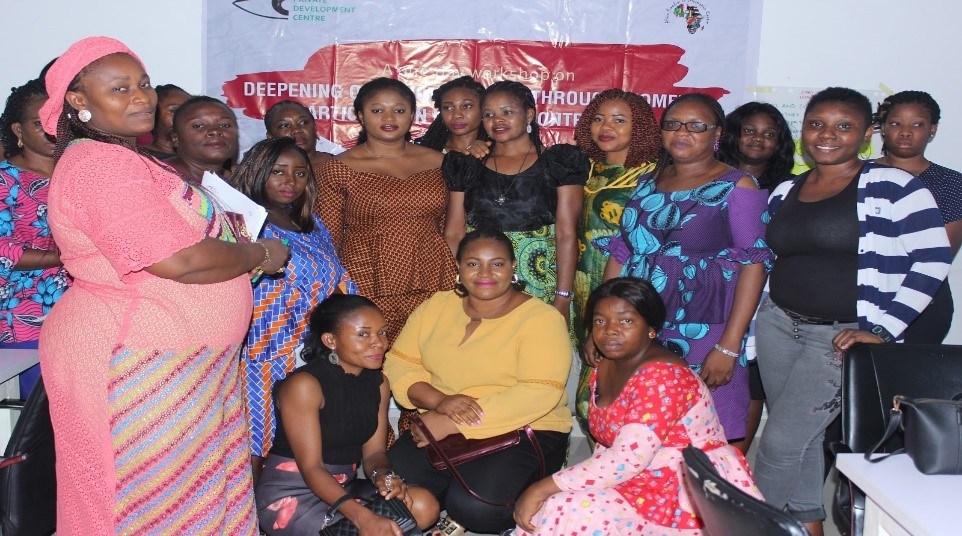
Women entrepreneurs in Nigeria gather after a workshop that was part of Africa Freedom of Information Centre’s (AFIC) Feminist Open Government Initiative research project.PHOTO: Credit: Africa Freedom of Information Centre (AFIC)
Women face barriers, including sexual harassment and demand for sexual favors, logistical issues and challenges, bureaucratic tendencies in registration and licensing, delay in payment for services rendered, among others which call for concerted effort by all stakeholders to find lasting solutions to enable women thrive in public procurement.
Through a variety of workshops with women’s groups, government ministries, non-governmental organizations, and relevant business actors, we identified critical challenges to women’s effective participation in procurement. These included structural challenges, where patriarchal norms were reflected in institutional setups, preventing women from participating in decision-making bodies, such as Parliament, civil service and local government, and resulting in limited representation. Women’s participation was similarly challenged by educational gaps and religious prescriptions that prevent or dictate the role of women in particular economic decision-making. Women’s access to financial assistance, especially by women-led or owned businesses through male gatekeepers, added an economic aspect to the challenges faced by women. Furthermore, a general lack of knowledge of the legal framework surrounding public procurement was reported. Overall, women in the informal sector were generally more disadvantaged in their pursuit of effective participation in public procurement than those in the formal sector.
I didn’t know anything about OGP before but this workshop has made me know it. This is an achievement for me.
Women also face various barriers to becoming entrepreneurs and acquiring benefits from public procurement given societal, patriarchal stereotypes that permeate both social and institutional life. We need to prioritise organising for collective advocacy for women’s participation and hold governments accountable to commit to ensuring women can compete in the arena of public procurement and contracting. The societal stereotypes and patriarchal systems deny them many opportunities to expand their business potential and participate in public procurement. Whereas some governments like Kenya have improvised with the legal and policy frameworks to provide reservation schemes for women’s participation in public procurement, the implementation still leaves a lot to be desired. Governments need to address the challenges faced by women if greater society is to reap the benefits of the unique potential for poverty alleviation, social and economic development, and genderOGP participating governments are bringing gender perspectives to popular policy areas, ensuring diversity in participatory processes, and specifically targeting gender gaps in policies to address gov... More equality that they hold.
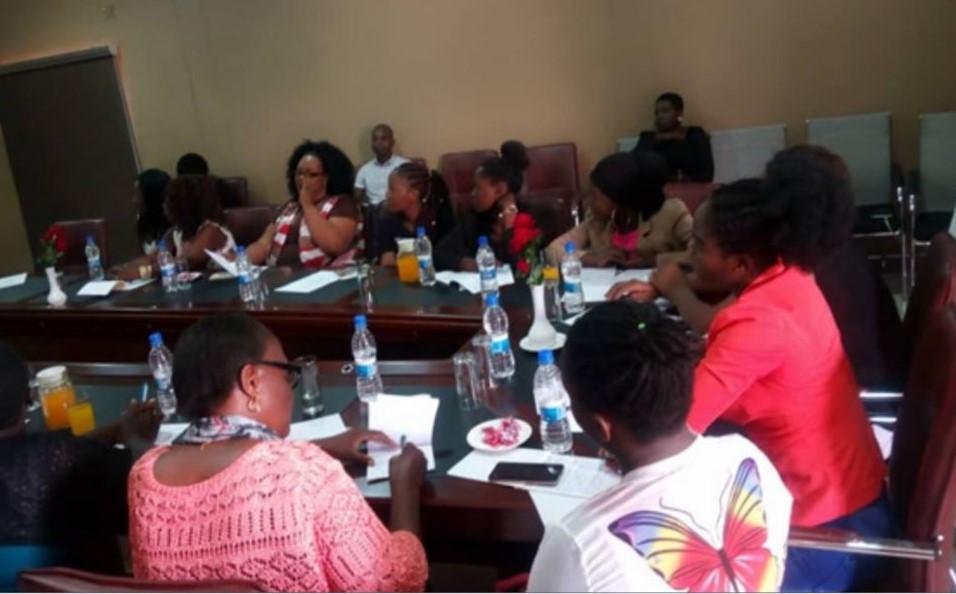
Women in Malawi during a consultation meeting as part of the Africa Freedom of Information Centre’s (AFIC) research for the Feminist Open Government Initiative.PHOTO: Credit: Africa Freedom of Information Centre (AFIC)
Project Impact Spotlight: Malawi
Lack of awareness and limited access to information on public contracting has hampered women participation in public contracting. Hence we would like for more initiatives to assist women to have a broader understanding of public contracting and this will help us to participate in public contracting.
In Malawi, Since at least 2003, the government has taken a number of steps to improve the country’s public procurement system. Prior to 2003, there were no proper regulations guiding the public procurement system in the country. During this period, public procurement was characterized by delays in the procurement process, inefficient and maverick buying, poor business processes, lack of adequate organizational or individual capacities, poor documentation and general procurement mismanagement. This led to increased pressure on the government from the citizenry and development partners to sanitize the system by instituting a proper legal and regulatory procurement mechanism. A major milestone in this regard was the enactment of the Public Procurement Act (PPA) in 2003 as a guide for public procurement to achieve efficiency, transparencyAccording to OGP’s Articles of Governance, transparency occurs when “government-held information (including on activities and decisions) is open, comprehensive, timely, freely available to the pub... More and value for money in public procurement. The PPA provided a new legal framework governing public procurement and provided for the establishment of the Office of the Directorate of Public Procurement (ODPP) with a mandate to act as an overseer of public procurement and ensure transparency, fairness, accountability and value for money in public procurement.
Most women did not know about public contracting and this was a very good platform for them to know and understand the basics of public contracting, particularly women in the informal business sector. Some of the women expressed that the workshops have helped them to become aware of the public contracting process and this has given them confidence to consider a shift from the informal sector to the formal sector, so that they are able to participate in public contracting.
Top Recommendations for Government and Civil SocietyThe research includes a variety of recommendations for strengthening gendered approaches across open contractingA transparent procurement process, known as open contracting, increases competition, improves public service delivery, and ensures governments better value for their money. Technical specifications: C... More. These include: Central Government/ Public Procurement Authorities
Civil Society/NGOs
Women Entrepreneurs
Open Government Support Unit The Open Government PartnershipThe Open Government Partnership (OGP) is a multi-stakeholder initiative focused on improving government transparency, ensuring opportunities for citizen participation in public matters, and strengthen... More has demonstrated great power in providing a platform for mobilising political commitmentOGP commitments are promises for reform co-created by governments and civil society and submitted as part of an action plan. Commitments typically include a description of the problem, concrete action... and linking resources to needs. In view of this lesson, the OGP Support UnitThe OGP Support Unit is a small, permanent group of staff that work closely with the Steering Committee and the Independent Reporting Mechanism to advance the goals of the Open Government Partnership.... should:
|
Featured Photo Credit: Omotayo Tajudeen
El Centro Africano de Libertad de Información (AFIC por sus siglas en inglés) recibió una donación para llevar a cabo una investigación como parte de la Iniciativa Feminista de Gobierno Abierto, programa que lideran Results for Development (R4D) y la Alianza para el Gobierno Abierto (OGP por sus siglas en inglés) con apoyo del Centro de Investigación para el Desarrollo Internacional (IDRC por sus siglas en inglés) de Canadá. La iniciativa busca incorporar las perspectivas de género en el gobierno abierto. Para conocer todas las investigaciones de la última cohorte, haz clic aquí.
El empoderamiento económico de las mujeres es un medio importante para potenciar inversiones hacia las familias y comunidades y para promover el desarrollo social y económico. Además, es una forma importante de contribuir a la equidad de género. La cantidad de mujeres emprendedoras alcanzó su mayor nivel en el mundo en 2019 y por lo tanto existe un potencial sin precedentes para impulsar los cambios mencionados. Sin embargo, a pesar de las medidas tomadas a nivel internacional, regional y nacional para el empoderamiento y la inclusión de las mujeres, la evidencia sugiere que ellas siguen siendo excluidas de los procesos de adquisiciones.
El gobierno debe sensibilizar a las mujeres sobre las adquisiciones públicas para empoderarlas con información del proceso a través de reuniones municipales o anuncios en las zonas rurales.
Por ello, el Centro Africano para la Libertad de Información (AFIC por sus siglas en inglés) y tres de sus miembros; el Centro para el Desarrollo Público y Privado (Nigeria); Artículo 10 (Kenia) y el Centro para los Derechos Humanos y la Rehabilitación (Malawi) trabajaron en la implementación del proyecto “Fortaleciendo el gobierno abierto a través de la participación de las mujeres en la contratación pública” a través de la Iniciativa de Gobierno Abierto de la Alianza para el Gobierno Abierto (OGP por sus siglas en inglés). El proyecto evaluó el acceso y uso de las información a información de contratación, el papel de las mujeres en la cocreación de planes de acción de OGP y la medida en la que los gobiernos están comprometidos con el acceso y la participación a las contrataciones públicas con el fin último de determinar si los compromisos han sido implementados y en qué medida.
El proyecto de investigación sensibilizó a las mujeres sobre el proceso de OGP en los tres países y renovó su interés en participar activamente en las contrataciones y adquisiciones públicas. Hoy, más mujeres conocen su derecho a participar en las compras y adquisiciones y la comunidad, en su conjunto, entiende mejor la necesidad de involucrar a las mujeres en las adquisiciones públicas en sectores clave. A través de reuniones municipales y otros espacios, se entablaron discusiones informales con mujeres para informarles sobre sus derechos y participación en las adquisiciones públicas.
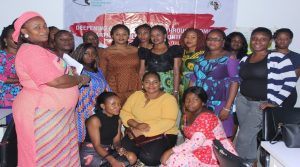
Mujeres emprendedoras en Nigeria se reúnen luego de un taller parte de el proyecto de investigación de la Iniciativa Feminista de Gobierno Abierto de AFIC. PHOTO: Credit: Africa Freedom of Information Centre (AFIC)
Pero para ello las mujeres enfrentan barreras, incluyendo el acoso sexual y la exigencia de favores sexuales, retos logísticos y tendencias burocráticas para los registros y licencias, retrasos en los servicios y otros que requieren de un esfuerzo coordinado por parte de todos los actores por buscar soluciones duraderas que permitan a las mujeres desarrollarse en el ámbito de las adquisiciones públicas.
A través de una serie de talleres con grupos de mujeres, ministerios de gobierno, organizaciones no gubernamentales y actores del sector privado, identificamos una serie de barreras para la participación efectiva de las mujeres en las adquisiciones. Algunas de estas barreras son retos estructurales, pues las normas patriarcales se reflejan en los arreglos institucionales, evitando que las mujeres puedan participar en los espacios de participación como el parlamento, el servicio civil y el gobierno local, lo cual resulta en una representación limitada. La participación de las mujeres también enfrenta retos relacionados a las brechas de educación y prescripciones que evitan o dictan el papel que las mujeres desempeñan en la toma de decisiones económicas.
El acceso de las mujeres a la asistencia financiera, sobre cuando las empresas de mujeres tienen representantes hombres, representa un reto económico. Además, se reportó una falta de conocimiento del marco legal sobre las adquisiciones públicas. Las mujeres del sector informal, en general, tienden a ser menos favorecidas en su búsqueda por una participación efectiva en las adquisiciones que aquellas que son parte del sector formal.
No sabía nada sobre OGP pero este taller me hizo conocer a la alianza. Esto es un logro para mí.
Además, las mujeres enfrentan diversas barreras para ser empresarias y obtener beneficios de las adquisiciones públicas debido a estereotipos sociales patriarcales que permean tanto a la vida social como la institucional. Debemos de dar prioridad a organizarnos para un impulso colectivo a la participación de las mujeres y exigir a los gobiernos que rindan cuentas y se comprometan a asegurar que las mujeres tienen la oportunidad de competir en el espacio de las adquisiciones y compras públicas. Los estereotipos sociales y sistemas patriarcales les niegan muchas oportunidades de ampliar el potencial de sus empresas y participar en los procesos de adquisiciones públicas. Aunque algunos gobiernos como el de Kenia han improvisado con los marcos legales para ofrecer esquemas para la participación de las mujeres en las adquisiciones públicas, la implementación de estos aún deja mucho que desear. Para cosechar los beneficios que las mujeres pueden ofrecer para la reducción de la pobreza, el desarrollo social y económico y la equidad de género, es necesario que los gobiernos contribuyan a atender los retos que ellas enfrentan.
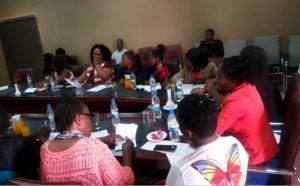
Mujeres en Malawi durante una reunión como parte de la investigación de la Iniciativa Feminista de Gobierno Abierto de AFIC. PHOTO: Credit: Africa Freedom of Information Centre (AFIC)
Impacto del proyecto en Malawi
La falta de sensibilización y el acceso limitado a información sobre las adquisiciones públicas ha dificultado la participación de las mujeres en la contratación abierta. Por lo tanto, queremos que haya más iniciativas para ayudar a las mujeres a tener mayores conocimientos sobre las adquisiciones públicas y esto nos ayudará a participar en las adquisiciones públicas.
En Malawi, desde al menos el 2003, el gobierno ha tomado una serie de medidas para mejorar el sistema público de adquisiciones. Antes del 2003, no existían regulaciones adecuadas para orientar el sistema de adquisiciones. Durante este periodo, las adquisiciones se caracterizaron por retrasos, compras ineficientes, procesos empresariales deficientes, una falta de capacidades organizacionales e individuales, poca documentación y, en general, malos manejos en el sistema.
Lo anterior llevó a una presión en el gobierno por parte de la ciudadanía y de organizaciones para limpiar el sistema a través de la institucionalización de un mecanismo legal y regulatorio adecuado. En ese sentido, un logro importante fue la publicación de la Ley de adquisiciones públicas (PPA por sus siglas en inglés) en 2003 a manera de lineamientos para asegurar que las adquisiciones públicas se realicen de forma eficiente, transparente y costo efectiva. El PPA representa un nuevo marco legal para regular las adquisiciones públicas y promovió el establecimiento de la Oficina de Adquisiciones Públicas, la cual tiene el mandato de supervisar las adquisiciones públicas y asegurar la transparencia, justicia, rendición de cuentas y costo efectividad de los procesos.
La mayoría de las mujeres no tenían conocimiento de las adquisiciones públicas y ésta fue una buena plataforma que les ayudó a comprender los conceptos básicos de las contrataciones públicas, especialmente para las mujeres del sector empresarial informal. Algunas mujeres expresaron que los talleres les ayudaron a enterarse de los procesos de compras públicas y que esto les dio la confianza de considerar una transición del sector informal al sector formal con el objetivo de participar en las adquisiciones públicas.
Recomendaciones para Gobierno y Sociedad CivilA continuación presentamos una serie de recomendaciones que surgieron como parte de la investigación para fortalecer la perspectiva de género en las contrataciones abiertas: Gobierno central/Autoridades responsables de las adquisiciones
Sociedad civil/ONG:
Mujeres emprendedoras
Unidad de apoyo de OGP La Alianza para el Gobierno Abierto ha demostrado tener mucho poder al ofrecer una plataforma para movilizar la voluntad política y vincular recursos con necesidades. En ese sentido, la Unidad de Apoyo de OGP deberá:
|
Crédito de la foto: Omotayo Tajudeen
Comments (6)
Kabatwairwe Olive Reply
Very Insightful, as a Woman advancing transparency in public infrastructure delivery processes in Africa, Access to Information, capacity enhancement, affirmative action in procurement and platforms for engagement are key for the women agenda!
PROFESSOR DERMOT CAHILL, Director of Procurement Research Strategy, HelpUsTrade Reply
Training women about opportunities on its own is not enough. Making public procurement processes gender responsive is absolutely crucial. The entire tender process needs to be redesigned, it is based on an old model suited to the post-World War II world of construction, whereas now we are in a world of services, and current suites of tender documents are very unsuited to this kind of economy. For women led business, which are as the report notes, are typically smaller, having to engage with massive under documents is not a commercially viable proposition. Also tender evaluators need to redesign their approach to evaluation criteria to give smaller businesses a look-in. Reserving contracts for WLSMES, by itself, will not be sufficient.
Roger Segawa Reply
This a good initiative that calls for supporting and empowering women to start up and register their businesses. In Uganda, data on Women-Led Business (WLBs) is non-existent. As we encourage women to join support groups for financial literacy, collecting saving and credit access, we should on the other front continue to advocate for gender dis-aggregation of procurement data, and reservation of at least 30% of the contracts for WLBs.
SAINT STEPHEN Reply
A very good and educational article. Women should be given opportunities to develop themselves and the nation too.
Cengkuru Michael Reply
Superb analysis! Gender Responsive Procurement (GRP) is a relatively new idea whose adoption necessitates a coordinated effort by the government and vendors. An excellent beginning point is a clear distinction and explanation of a woman-led business.
Leave a Reply
Related Content

Gender in OGP
Open government reformers are joining forces with gender and inclusion advocates across the Partnership to better recognize and respond to the lived realities of women, girls, and those across the…

Feminist Open Government Research
Explore findings from the latest round of research for the Feminist Open Government Initiative.
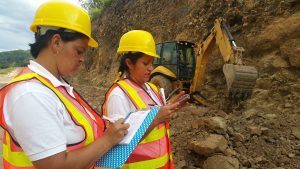
Open Contracting and Public Procurement in OGP
Open contracting and transparency in public procurement have proven to save money and broaden competition. It is becoming a global norm in OGP, with over 70 members committing to reforms…

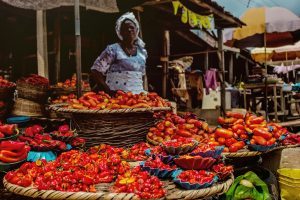
Chris owalla Reply
How can we partner for the purposes of creating awareness at grassroot levels a long the lake region counties
http://www.ciagkenya.com